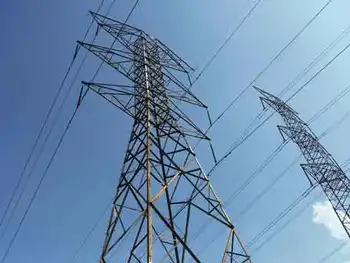France rushes to revive carbon tax
By Reuters
NFPA 70e Training
Our customized live online or in‑person group training can be delivered to your staff at your location.

- Live Online
- 6 hours Instructor-led
- Group Training Available
France's highest court stunned President Nicolas Sarkozy's government by ruling against the tax, saying there were too many loopholes benefiting major industrial polluters.
The new tax was expected to raise 1.5 billion euros (US $2.15 billion) next year and the court's decision will put added pressure on the budget deficit, already forecast to come in at a high 8.5 percent of gross domestic product in 2010.
Ministers promised to present a revised text on January 20 but it could take weeks more to get the law back through parliament and badly needed cash flowing into state coffers.
"The government is going to persevere. It is a tough fight, but a worthwhile one," government spokesman Luc Chatel told LCI television. "France has to remain in the forefront of the battle to protect the environment," he added.
The carbon tax was promoted by Sarkozy as a cornerstone of his fiscal and environmental policy. It was set to come into effect on January 1, by imposing a levy on oil, gas and coal use amounting to 17 euros per ton of carbon dioxide emissions.
However, many of France's biggest industrial polluters, as well as truckers, farmers and fishing fleets, were offered generous discounts, or exempted altogether.
The government argued that many of these sectors already faced European Union curbs and should not be placed at a disadvantage to their international competitors.
The Constitutional Court objected that 93 percent of industrial carbon dioxide emissions would be exempt, saying the measure would do nothing to combat global warming and went against the spirit of fostering equality amongst taxpayers.
The opposition Socialist party had long complained that the tax would unfairly penalize low earners and crowed victory.
"This is a good decision and shows once again that Sarkozy's way of doing things does not work," Socialist parliamentary party leader Jean-Marc Ayrault told France Info radio.
"They announce a reform, listen to no one and produce a poor job. It's a real mess... now they will have to start from scratch and oversee a fiscal reform that is more ecological and does more to protect the environment."
The junior minister for trade and consumption, Herve Novelli, said the revised tax would offer fewer loopholes.
"It was perhaps shocking that the sectors given exemptions were those that polluted the most.... We will therefore need to remedy that," he told Europe 1 radio.











